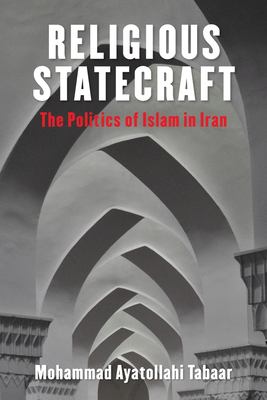
Book
|
Religious statecraft : the politics of Islam in Iran
Copies
2 Total copies, 2 Copies are in,
0 Copies are out.
Title
Religious statecraft : the politics of Islam in Iran
Call No
322 .10955
Edition
Paperback edition.
Authors
Subjects
Language
English
Published
New York : Columbia University Press, [2019].
Publication Desc
xii, 378 pages ;
ISBN
9780231183673 (paperback)
Target Audience
General
Dimensions
23 cm








